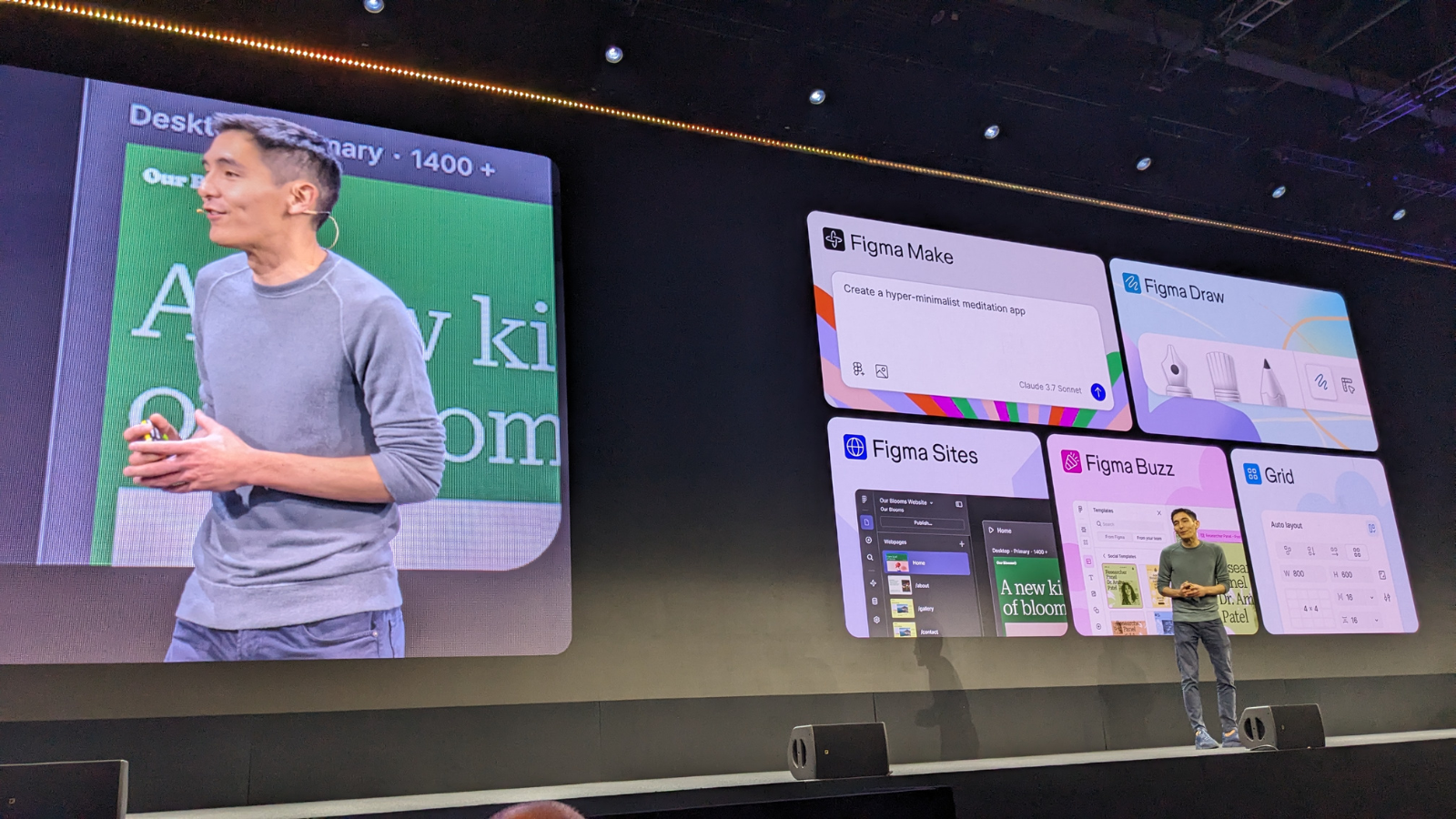London Tech Week 2025 as it happened - Jensen Huang, Keir Starmer and everything else we saw at the show
We were at London Tech Week 2025 - here's what we saw
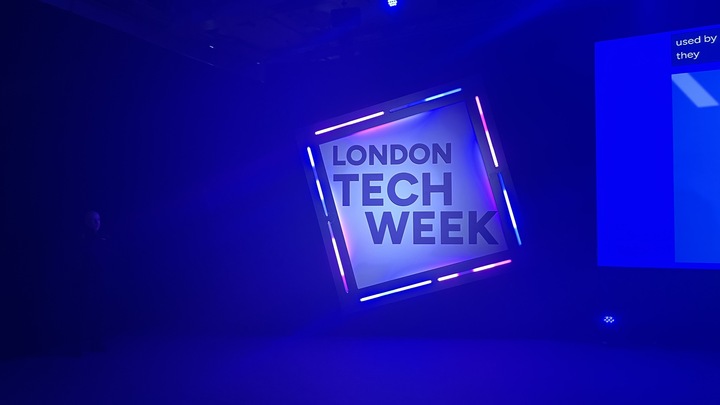
TechRadar Pro was live at London Tech Week 2025, and what a few days it was.
Day one opened with Nvidia CEO Jensen Huang alongside UK PM Sir Keir Starmer talking about the future of AI, and day two featured a wide range of talks, panels and news announcements.
Our coverage has now wrapped up, but if you'd like to revisit any of our adventures, you can view it all below!
Good morning and welcome to our coverage of London Tech Week 2025!
We're live on the ground and ready for the event, which kicks off today at London's Olympia with a welcome from the Prime Minister Keir Starmer.
That's followed by no less than the CEO of Nvidia himself - Jensen Huang will be on stage soon. It's bound to be a busy talk, so we're hoping we can get in and seated soon...
We've made it inside Olympia, but the queues for this morning's opening sessions are going to be major...wish us luck!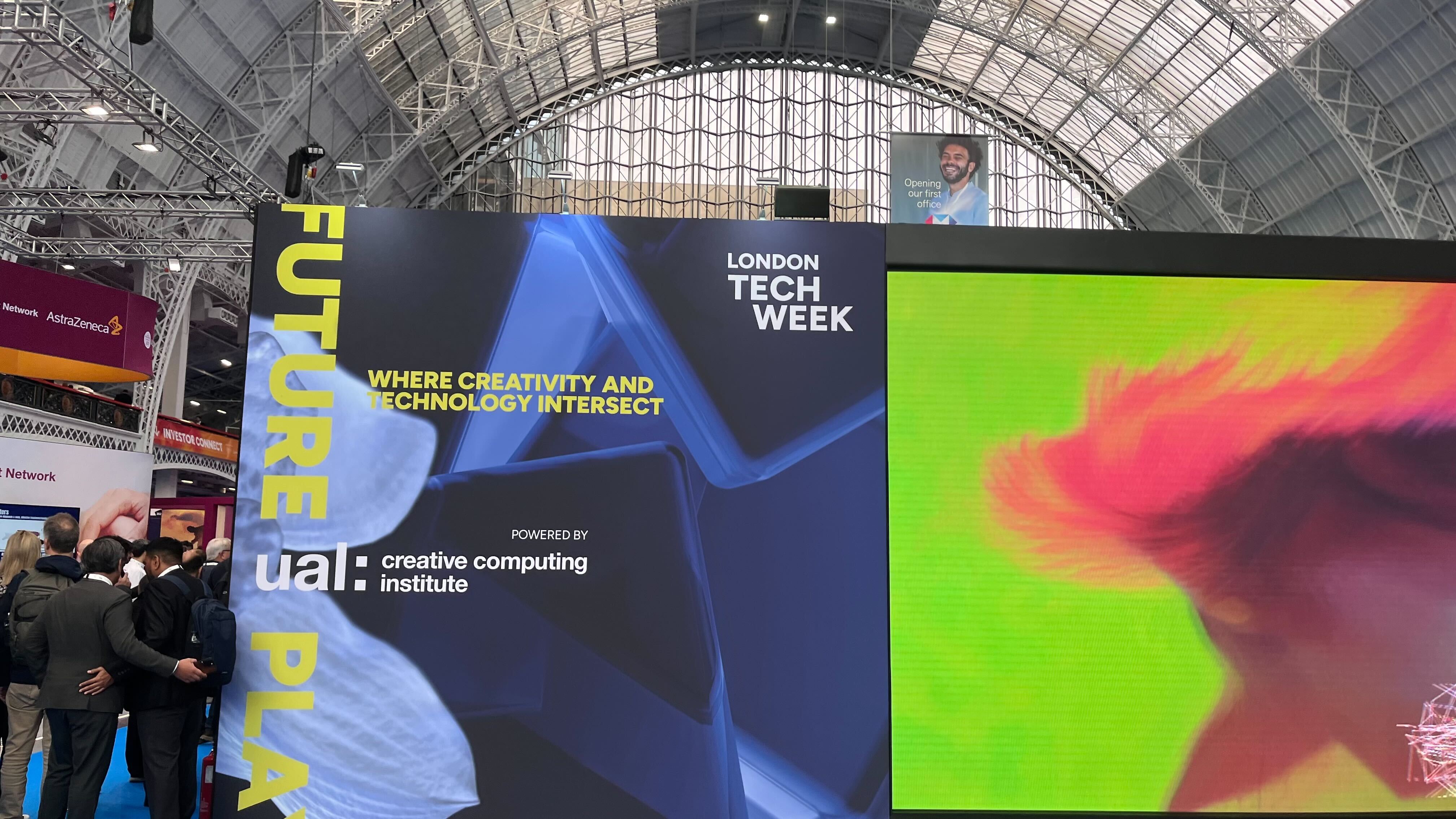
The stairway to (London Tech Week) heaven...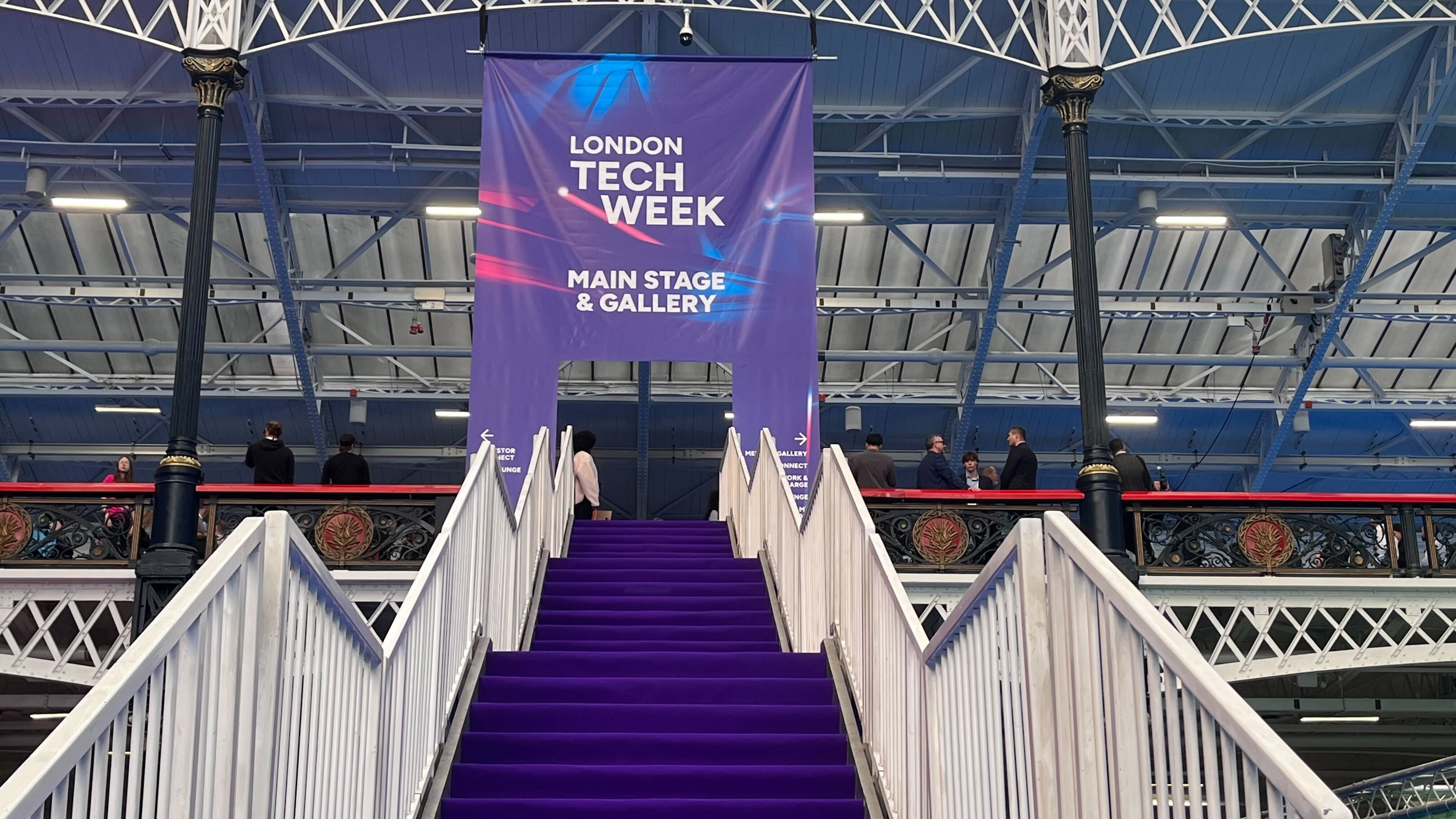
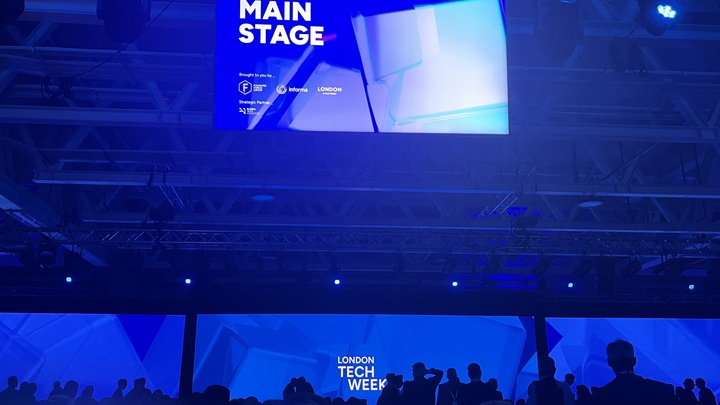
Ellen here, and I'm finally sat down for the keynote - there's definitely a buzz here today. We're not set to kick off for a few minutes, but I'd say the seating is pretty much full.
Kier Starmer takes the stage now to talk about tech as bringing about great change, and the ‘incredible contribution’ of tech and AI in health and defence - calling AI a transformative in a ‘number of industries’.
Two big announcements come with the PM's introduction this morning - the first is that Liquidity will base their European headquarters in London, he announces - a £1.5b investment - a "vote of confidence", he says.
The second is £1b funding for compute power to scale up capabilities by 20x - a serious investment
That's not all though, he talks about an innovative tool being trialed around councils in the UK that takes hand written planning permission forms and turning them into digital copies in seconds - saving hours for admin workers (but admin workers shouldn't be concerned about their jobs....?).
Starmer announces plans to ensure that 7.5 million workers are to be trained in AI by 2030 - and NVIDIA are set to sponsor a "talent pipeline". A new tech-first training programme, a £185m investment into education at school and university level will help to "build a better future" for children across the UK - Starmer thanks the tech industry for its investment into Britain's future.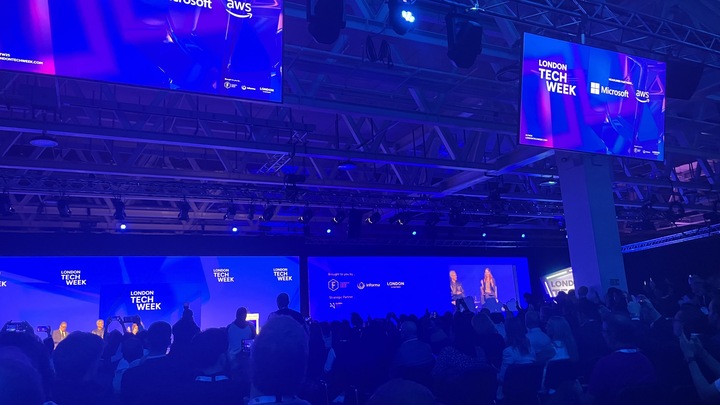
He introduces Nvidia CEO Jensen Huang for a conversation with himself and Poppy Gustafsson - Minister for Investment. Starmer and Huang both agree that the UK need to 'lean in' to AI - they argue it will make the country more secure with cybersecurity protections and economic growth.
AI is not just a technology, but an infrastructure, Huang argues, and that infrastructure requires serious investment and commitment.
The training for workers and students in AI technologies will be crucial, Starmer argues, and exposing young people to AI and tech will open the landscape and encourage young people to excel in the workforce.
Huang calls AI 'The great equaliser' - thanks to the way it makes programming and cybersecurity more accessible. AI uses prompts, and 'speaks human' - so no need to learn python or C++ anymore. Both the PM and Huang argue that AI will "make humans more human".
The UK is in the 'goldilocks' region - Huang argues. This is because of its fantastic universities, and research communities. Pair this with the 3rd largest AI venture capital investment (behind the US and China) - and you have a perfect ecosystem. However, he points out, this is hindered by the lack of infrastructure - but Huang and the PM agree that this will soon change.
Nvidia is set to start an AI lab, and investments into quantum computing power will 'get the flywheel going' Huang points out - he says the UK is the 'perfect place' to invest.
Huang predicts that thanks to AI, every industry in the UK will soon be a tech industry. He urges all sectors to apply tech and AI to their workplaces. The UK is an envy of the world thanks to its "abundance" of AI researchers - and investments keep growing.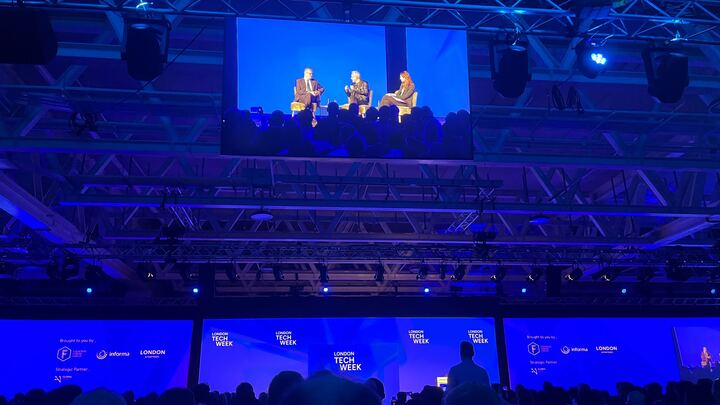
There's "only one way you can survive" a technology that moves as fast as AI - Huang argues, and that's by engaging it. Sciences, schools, financial services are all "deeply engaged by Ai" now, he says.
Starmer argues a very similar point. He understands that partnership with AI will push productivity and growth across the UK.
Now, we're hearing from Darren Hardman, Corporate Vice President & CEO - Microsoft UK. He's talking about the power of Agentic AI - and announces a deal with Barclays to deliver 100,000 Microsoft 365 Copilot agents for employees.
He gives examples from the NHS and the civil service for allowing agentic AI to turbocharge productivity by freeing up time.
He also addresses concerns, but they’re for Microsoft to help resolve, not dismiss, he assures. Copilot is focused on security and inclusivity ‘building a fair AI economy means making sure everyone moves forward together’.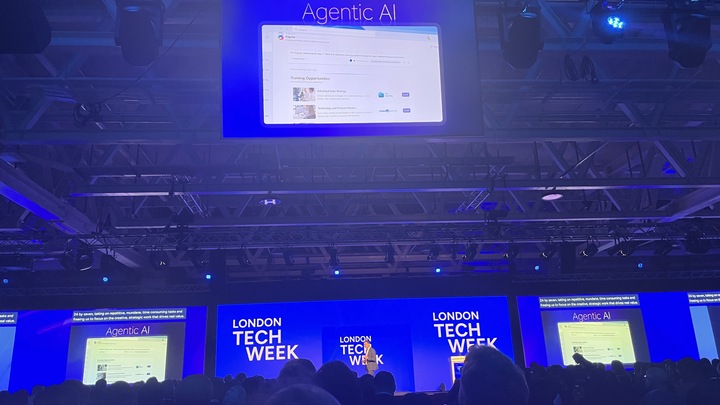
Microsoft tools like Azure and Copilot will help build an AI powered UK - where no ambition is too big, and no idea is too small. If you see greatness by standing on the shoulders of giants, then “Together, we’re building the giant”, he says.
Now I’m heading down to the floor to take a look at the exhibits - there are hundreds of sponsors and exhibitors this year, so I’m sure there’ll be plenty to find!
I’ve stopped by Dell, who are talking me through their work to support AI ecosystems and infrastructure - they centre security and sustainability, although their stall guide is happy to admit that AI and sustainability is a difficult conversation to have. I did ask if they were at all concerned about recent news that Microsoft and AWS have paused data centre projects, but Dell’s spokesperson says no. Demand is still high, so they’re confident in what they’re doing - ‘if everyone stops their projects we’ll start worrying’ he says.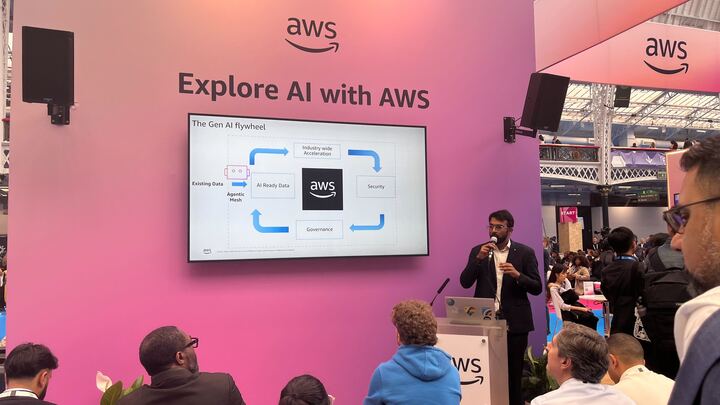
Next, it's AWS - who very kindly give me a demonstration of their Checkbot agentic AI. In the demonstration, the chatbot is asked to create a newsletter using trusted sources, and is given prompts to tweak the output. It did manage to produce a newsletter, albeit a simple one. I also took a look at a demonstration of the "GenAI Flywheel" - which puts AWS at the centre of data, security, and governance.
It's super busy on the floor today, and finding someone to speak to on the more popular stands is proving pretty difficult (although it doesn't come close to the line for coffee). I'm yet to find a stall that doesn't mention AI at least once...
Bit of a fun one for me next, with Redbull's Christian Horner talking to LinkedIn's former Tech Editor Sam Shead. They're discussing the dynamic relationship between tech and racing. Horner says that staff are an organisation's biggest asset, so providing a comfortable and productive environment is key. Horner's personal leadership style is 'one of empowerment' he says - its about making sure people have the right tools and right direction in the area they're recruited for.
Horner says AI is a super exciting technology in F1 now, Redbull uses AI on race strategy in terms of interpreting the rulebook (despite last weekends strategy "screw up").
Max Verstappen's hunger and passion makes him one of the best drivers of all time, Horner argues, but his investment into the virtual world with SIM racing practice gives him a huge edge. SIM racing is in its fifth evolution, and it gets more accurate with every development stage, Horner says. On 90% of the occasions the SIM correlates exactly to what happens on track - so in the absence of free practice, it can make the world of difference.
Horner takes a nice little dig at Drive to Survive by calling it "the Kardashians on Wheels" before praising the show for bringing in new fans and a younger demographic of supporters. He also talks about the need to encourage more young girls to join the sport at grassroots level - and talks about how important things like the F1 Academy series are in helping the sport's diversity.
Will F1 ever be fully electric? Horner says potentially. Formula 1 is at a crossroads, with a 50/50 split coming in the new 2026 regulations - but Formula E (the electric series) "has no emotion to it" Horner says - they "sound like Scalextrics" and they lack the heart that F1 brings - and I doubt that's an unpopular opinion in the sport.
The main stage is taking a quick break for lunch, but before I head down, here's a look at the crowd for AstraZenica’s Cindy Hoots. It’s a huge room but so far most speakers have filled it and then some!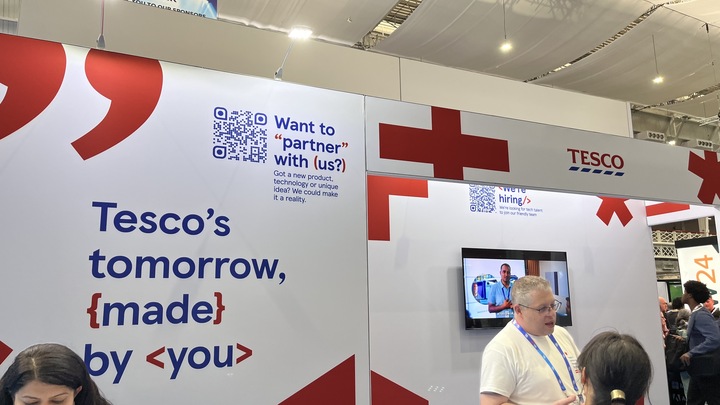
There's some big names here at London Tech Week - and not just tech companies. Tesco is here, and they're recruiting! I did ask what roles they're recruiting for or if they're expanding but they were super vague. They did say they wanted to showcase themselves as not just a retailer, but a tech company too - although when I asked what that meant, they couldn't really say.
Next, I stopped by Innovate UK to hear about everything they do with grants and funding for businesses in Britain. Funded by the government, Innovate offers free services like expertise and advice in R&D to both small and large businesses across the UK - currently supporting around 10,000 organisations, helping them "start, grow, and scale."
Mike here as Ellen takes a well-earned breather!
It's been a packed morning so far at London Tech Week 2025 - let's take it right back to the start, when Nvidia CEO Jensen Huang joined UK Prime Minister Sir Keir Starmer on stage.
The two were there to talk about the UK's AI future, and covered a lot of ground in a short time.
Top of mind was new partnerships between Nvidia and the UK government's Department of Science, Innovation and Technology (DSIT), as well as the Financial Conduct Agency (FCA) - you can read the whole story in our write-up here.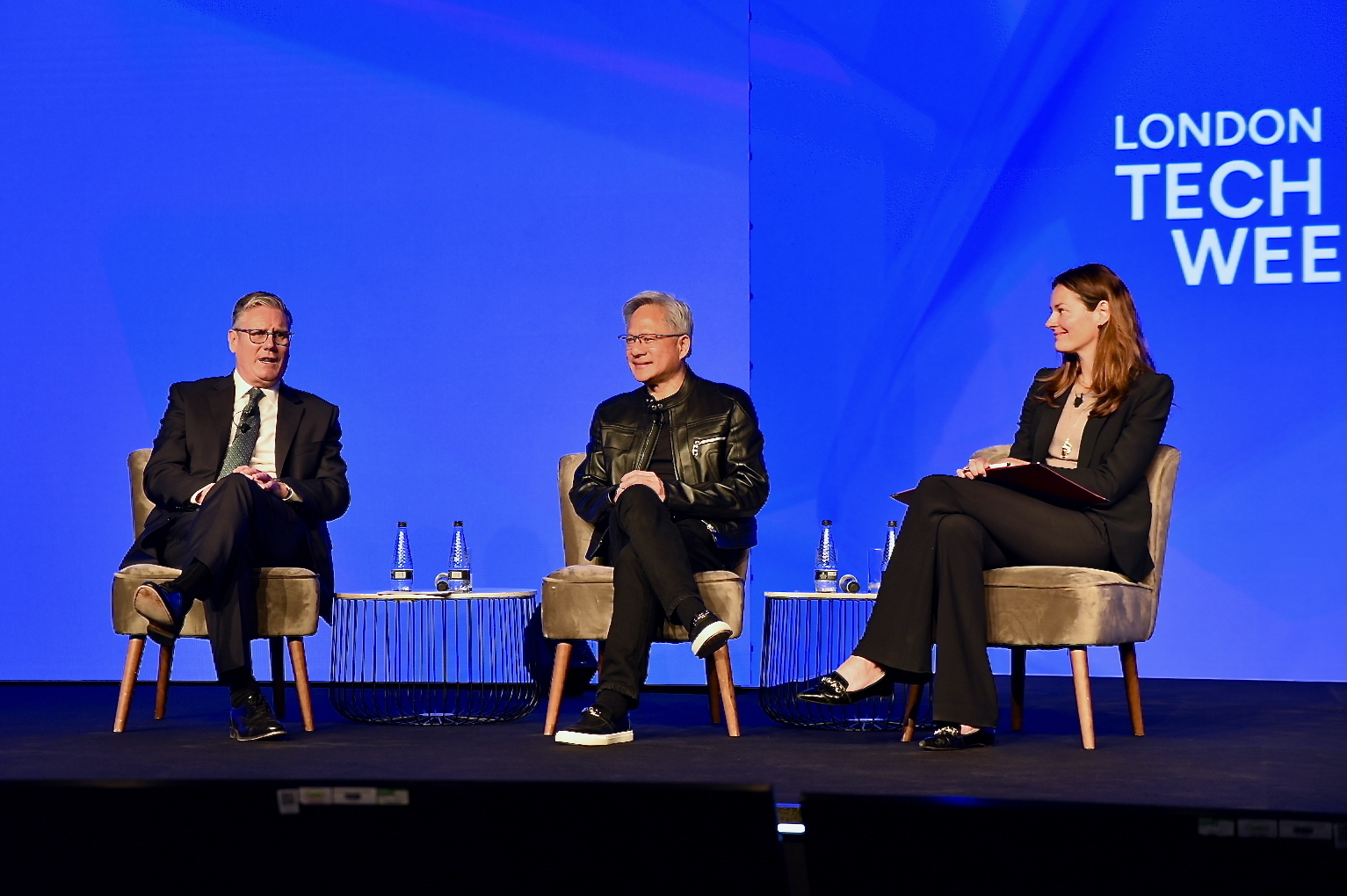
The news understandably inspired a lot of reaction from key players in the UK tech space - here's some of the responses we've seen...
"For the UK to achieve its growth ambitions, we need action in the form of faster planning approvals and quicker grid connections, alongside clear and stable regulation. Without that, we simply cannot unlock the tens of billions in private capital that's needed for the energy and digital infrastructure that AI demands. This level of transformation requires partnership. The Government must lay down clear policy signals and incentives, while industry delivers the innovation and technical firepower. Nail that, and the UK won’t just train AI – we’ll deploy it where it matters most, from life sciences to finance to frontline public services." - Seamus Dunne, Managing Director, UK & Ireland, Digital Realty
"Nvidia’s Jansen Huang promises that AI will bring us “productivity and security”. This might be an incredible opportunity for the UK if that’s so and could be “broad and transformative to many services and industries”. To date the UK has excelled in the public sector as Europe’s number one adopter of AI in the public sector. But as we look to AI as infrastructure, it is vital that we invest here in the UK not just in AI infrastructure but in the existing platform infrastructure that we rely on already for service delivery and which has not met the standards it ought to," says Amanda Brock, CEO, OpenUK.
"Policies, and even laws, are helpful to a degree but simply won't achieve the goals of making a country a tech leader on their own. This is achieved with a combination of economic success and business growth alongside resilient digital infrastructure and services for the UK’s citizens. Whilst companies focus on shareholder value, ensuring resilient infrastructure and practical skills will be needed to meet Starmer’s goal and ”speed up the infrastructure needed for ordinary working people," she adds.
We've also had some new data from Korn Ferry concerning how UK workers feel about AI in the workplace compared to other countries - and the headline is basically, they don't appear to be that bothered about it right now!
The global survey found UK employees were among the least enthusiastic about AI and emerging tech in the workplace, with just over half (53%) of UK respondents saying they feel excited and positive about how AI will change the way they work - well below the global average of 61%.
UK workers were also less bothered about joining companies with advanced tech/AI, with only 49% saying they rated it in the top two importance levels.
Worryingly, nearly half (43%) of Gen Z UK workers said they felt certain AI or other technology will replace their role in the next 3 years, the highest of the generations compared to millennials, gen X and baby boomers.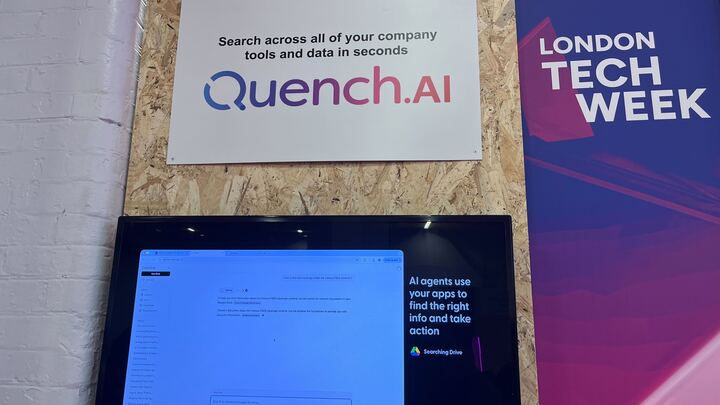
I'm having a look round some of the smaller stalls now, and I'm at Quench AI - an internal search tool that integrates with existing systems like Slack and CMS' to help users locate company data. This is aimed primarily at SMBs with between 50-100 employees, although they've worked with local governments and larger enterprises already.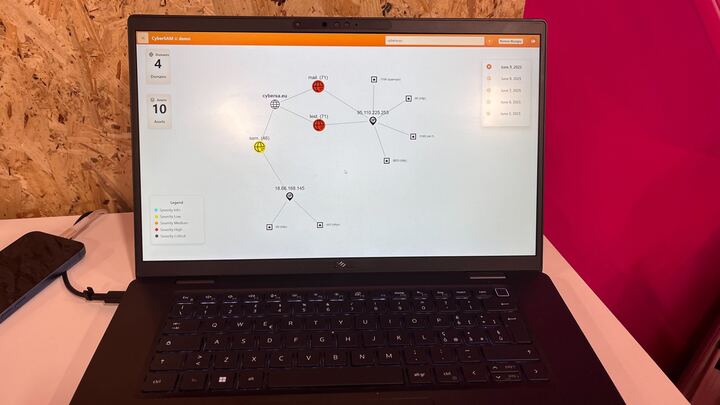
Next, I'm visiting Italian cybersecurity company CyberSA - who provide a sleek and simple attack surface management platform for businesses without large security teams, They've worked within a range of industries so far like military, government agencies, and fintech platforms. As you can see from the photo, the user interface is really easy to navigate and sets out its warnings and recommendations in very clear terms.
Something a little different here, I'm hearing about FoNG - the Finishes of Nature Global, a South African, a sustainable and smart waste management firm that works with private and public customers, and has even done projects with the EU to deliver clean water and plumbing to off-grid and rural properties. Contrary to a lot of the other organisations here, FoNG specifically aims to help reduce reliance on the electrical grid for farmers and communities with more unstable connectivity.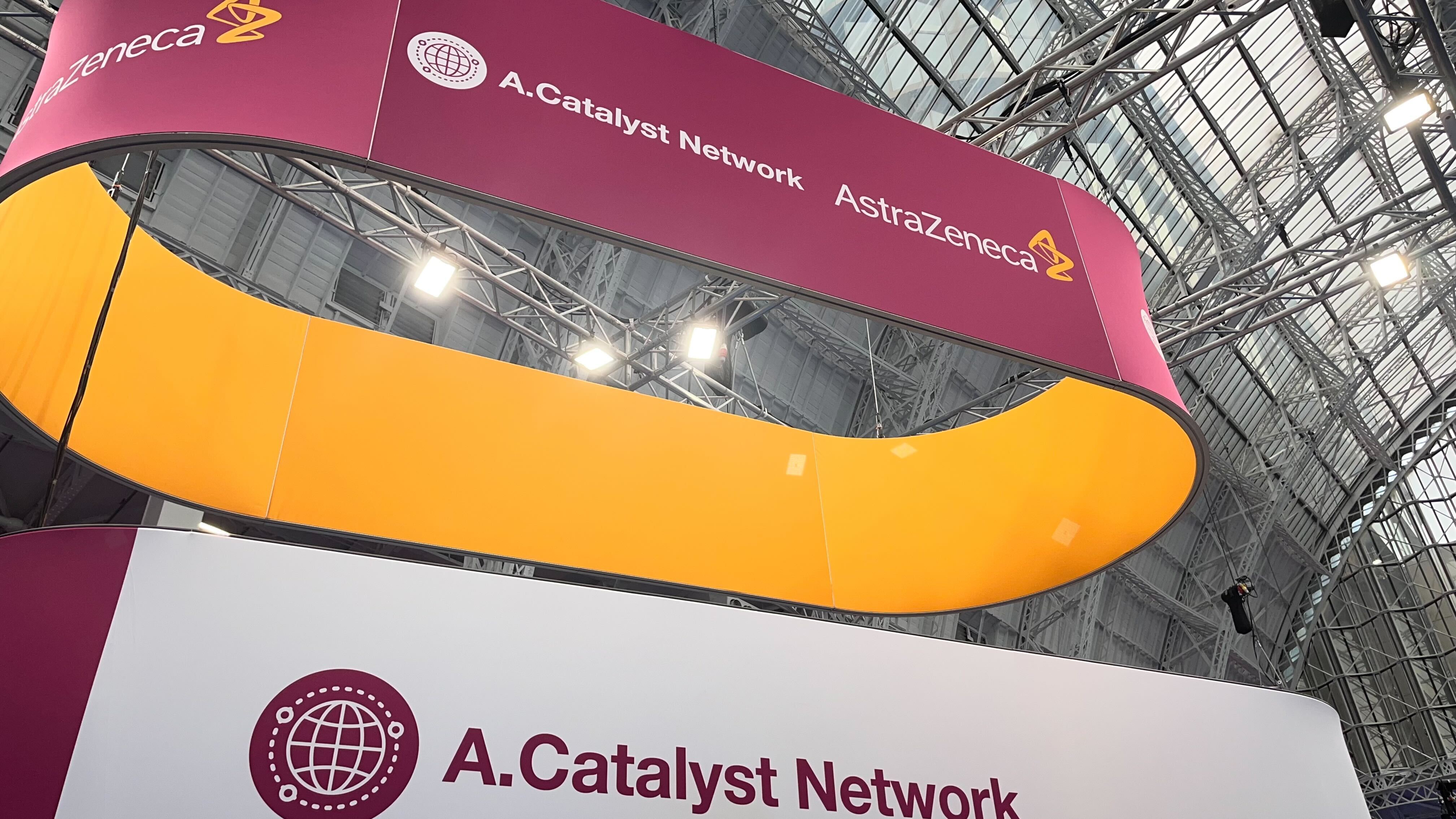
Next I'm with AstraZeneca, who are explaining how AI is an invaluable tool for the three V's of data they collect - Velocity, Variety, and Volume. For clinical trials, pharmaceutical companies often have to collect the information of hundreds of thousands of patients, and ensure compliance with the trial, as well as ensuring participants are from a wide range of geographic, ethnic, gendered, and medical backgrounds to collect and sort through as much data as possible. AI enables them to sort through this information faster than ever before, helping them take drugs to market faster.
Next its another startup in DataButton, a software building company that aims to help companies save "thousands" in software development costs by providing an AI powered platform. They're based in Norway, and are only a year old, but have already gained thousands of customers - so they're one to watch!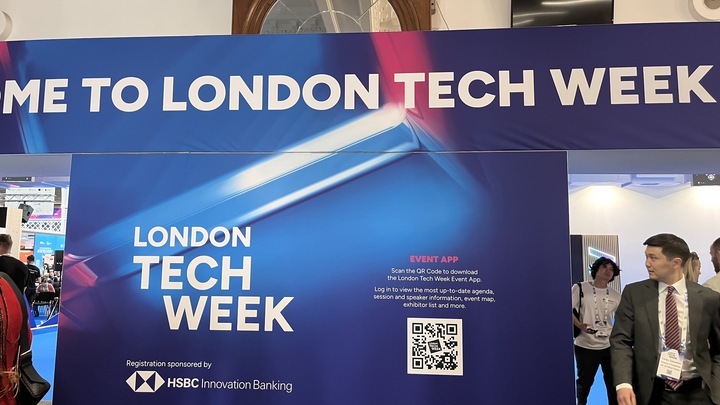
That's it for us today - we'll be back again tomorrow for more keynote coverage and expert insights. There's still plenty more to see, so make sure you tune in!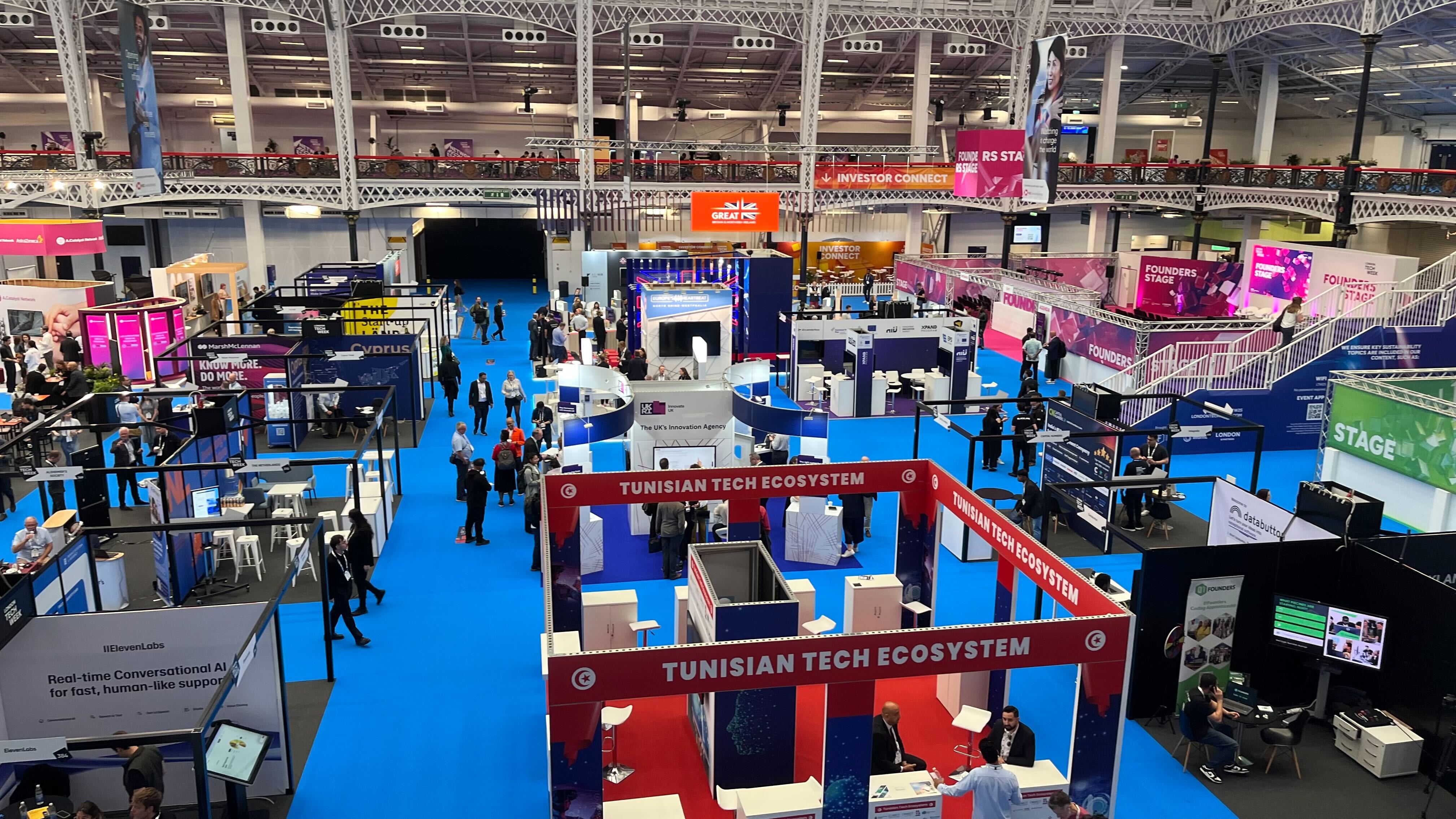
Good morning from London Tech Week day two! It's much quieter here this morning as you can see - but hopefully that'll give me time to get a coffee before I head to the first keynote of the morning.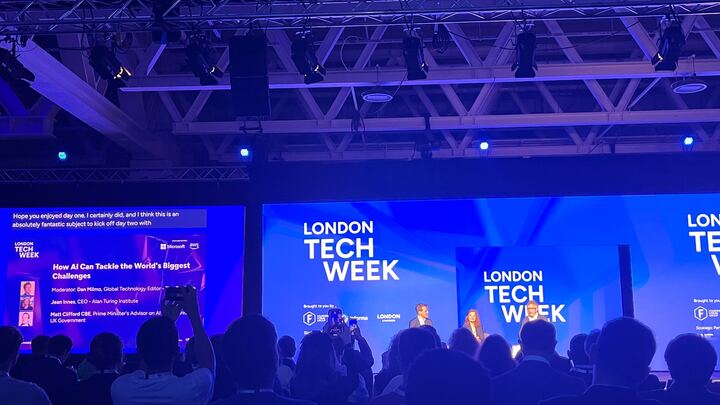
First up - we're listening to Jean Innes, CEO of the Alan Turing Institute and Matt Clifford, the No.10 AI advisor - they're speaking to Dan Milmo, The Guardian's Global Technology Editor. The discussion has opened with the question - "AI - hope or hype?"
The fourth industrial revolution, centred around AI, will take decades to play out, they agree. The extremely rapid and fairly unpredictable development of AI means we have no idea where AI could take us. Clifford argues that perhaps the tech is over-hyped in the short term but under-hyped in the long term. Tangible benefits have been delivered, he says, but the world's biggest problem won't be solved overnight, and the tech needs time and investment to properly develop.
Now they're discussing sustainability - a pretty uncomfortable conversation for a lot of AI enthusiasts. But, Innes argues that long term, AI can help solve environmental issues by saving energy costs through smart shipping routes, for example.
There's a PR problem for the environmental effects of AI, she agrees, and long term the environmental challenges will be tackled in time. The benefits will outweigh the costs, she says. Clifford also argues that energy usage is not an AI-specific problem, and that a prioritisation of clean-energy is one of the ways to address these concerns.
On the topic of productivity, Innes argues that AI will be fantastic for growth, but "we need to take care of people". AI won't necessarily replace jobs, she says, but can also be used to train and support workers - "it's so important to bring everyone with us".
Clifford argues that increased productivity will come higher wages, which is the way people should be looking at the technology challenge, He wants more people in the UK to quickly adopt AI so that the UK can become the world leader - which Innes agrees with, calling this the UK's "moment of potential".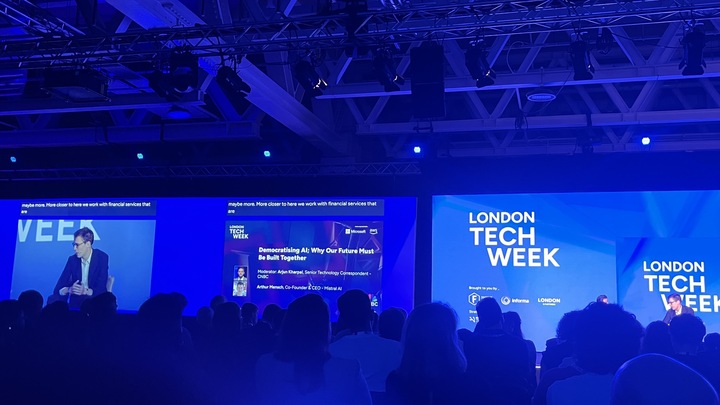
Next, its Arthur Mensch - CEO of Mistral AI talking to CNBC's senior technology correspondent Arjun Kharpal. They open by discussing the importance of open-source models. When you give something to the community, Mensch argues, you can build something together.
There are two directions for AI firms, Mensch says. The first is larger, broader models with more training data and requiring more compute power. The second, is smaller, specialised models which are cheaper to train and run. Mensch argues though, that most will develop larger models only to shrink them once their use case is established.
Mensch announces a new reasoning model for Mistral - called Magistral - focused on operating with multiple languages, especially European languages. The big differentiator for this model will be that it is open-source that you can run on your laptop.
Europe's position in AI has been heavily debated this week so far. Mensch points out that Europe is investing in data centres, and Europe's strong energy grids allow it to develop stable infrastructure. However, lots of cloud providers are US based, meaning that a lot of opportunity is missed and needs to be 'recaptured'.
Mensch also argues that Europe is in a good position to start building semiconductors, maybe not at the pace of Taiwan, and maybe not in the next few years. He won't be the first to start though, he jokes.
AI is going to be a huge driver of GDP across the globe, Mensch explains, and if the tech in unevenly developed it will worsen global inequality - a problem which desperately needs to be addressed.
I'm going to head back down to the floor now, hopefully I can speak to a few of the stalls I didn't manage to yesterday.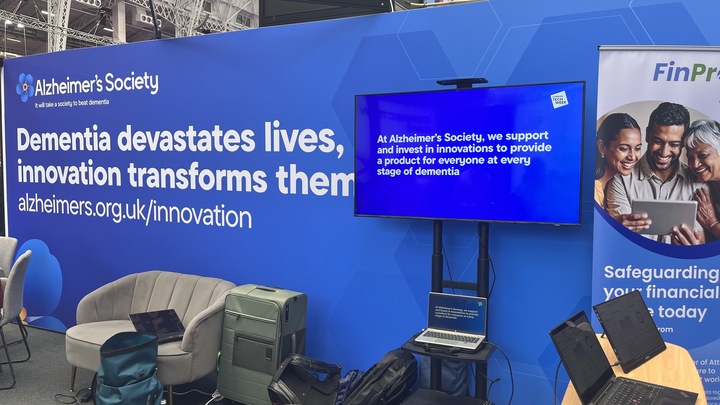
There's a really interesting range of industries on show today, which I suppose illustrates how tech has permeated every aspect of our lives. For example, I'm here with the Alzheimer's Society innovation team, who explain that they have an initiative to support small startups and businesses that make products aimed at helping people with Alzheimers. They currently support over 25 companies and even invest in some - like smart watch, smart glasses, and monitoring tech to improve the lives of Alzheimers patients.
I'm visiting a mining company now, RioTinto, who extract lithium, copper, and iron. Mining is not known for its eco-friendly practices, and they're here today to essentially reach out to small startups who may be able to help them reduce their carbon footprint or develop more sustainable methods.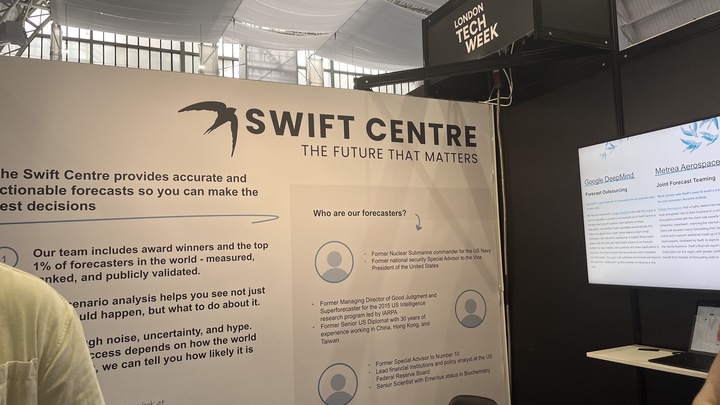
As someone who loved Nate Silver's "The Signal and the Noise", this next stand is one of the most interesting so far. The Swift Centre is essentially a risk-prediction firm who bring together industry experts to forecast not only what will happen, but how this will affect businesses (more accurately than an algorithm can). Predictions like the introduction of new regulations, recessions, and even geopolitical conflicts are all within their realms of experience, even accurately forecasting a growth in coal demand in 2024.
Next its Streamlogic - an AI software firm that uses existing AI models to create an AI project manager which claims to be 40% more cost efficient and 60% more time efficient than its human counterparts - they're only a year old but boast some pretty big clients like UnderArmour and Disney - Streamlogic isn't just delivering software, it's delivering momentum" they say.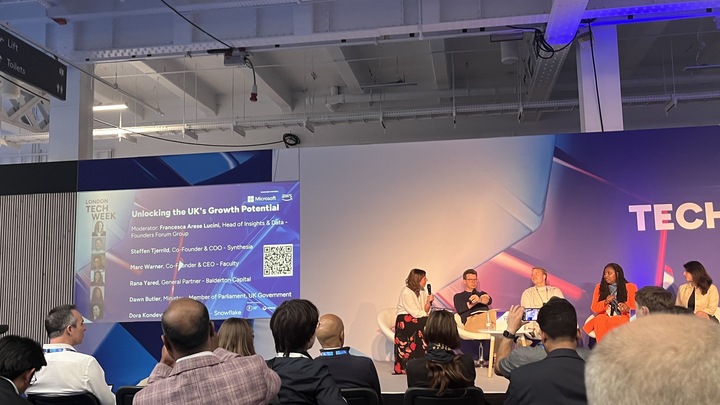
Now I'm at a smaller stage listening to a panel about unlocking the UK's growth potential with tech with MP Dawn Butler, Synthesia Co-founder Steffen Tjerrild, and others.
Butler argues that we must ensure AI is developed in an ethical way - guardrails on how data is collected and used should not hold back ethical companies, and those that use data responsibly will instill confidence in their customers too.
CEO at Faculty Marc Warner argues that gaps between economies will grow alarmingly quickly, especially in the case of an exponentially growing sector like AI, and the ecosystem in the US dwarfs the UK - but this is not just the Government's problem to fix. He argues that the private sector should take this into its own hands by improving education, skills, and small businesses.
Rana Yared from Balderton Capital urges Butler to bring the Government to change tax rules to encourage larger companies to stay in the UK - as she points to large firms that start up in the UK but then move to the US as they gain momentum. Butler argues that safe, ethical, and responsible tech companies are operating within the UK without suffocating regulatory/tax burdens.
The government is clunky, Butler admits, and AI is moving at an extremely fast-pace. We need more than what we're currently doing, she says, but education schemes, investment schemes, and tech opportunities are driving the tech sector in the UK without being overly restrictive. Companies that get government funding but then leave the UK should pay a tax to leave, Butler argues - to ensure that the funding they benefit from is not sunk into firms that then go on to pay tax somewhere else (she is keen to say that this is a personal view, not government policy!).
The biggest difference between the UK and US in terms of the skills gap, Marc Warner says, is salary. Previously it was the case that London based tech companies were paid 10% more than Californians, but right now, British tech workers are paid an average of 300% less than their CA counter-parts. Addressing this could quickly help turn around the skills gap, he argues.
Butler calls procurement of tech companies 'very sexy' in terms not just of economic growth but also in talent-growing in Britain. The tech ecosystem can grow through procurement that considers not just cost but also responsible uses, British input, and ethical building practices.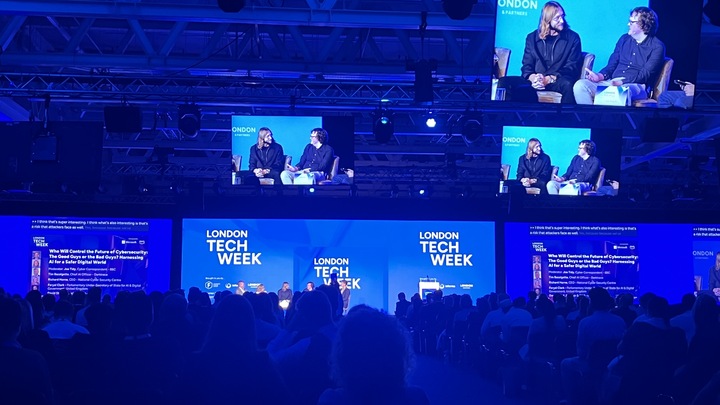
I've run back up to main stage now to hear the end of a debate on the age old question - "who will control the future of cybersecurity: The good guys or the bad guys?". Just last week I went round InfoSecurity Europe and asked some of the nation's top security experts if they think they have the advantage over hackers - and they overwhelmingly confirmed that attackers are on the front foot thanks to AI.
Richard Horne, SECO or the NCSC likens AI to a the adoption of carbon-fibre tennis rackets - it revolutionises your game, and helps measurably with performance - but soon, no one will be using wooden rackets anymore, so your opponents get an advantage too.
Far too many of our businesses don't prioritise cybersecurity, argues Feryal Clark, and and that's the most worrying thing in tech. Getting the basics wrong is much more dangerous than any new sparkling technology, she says.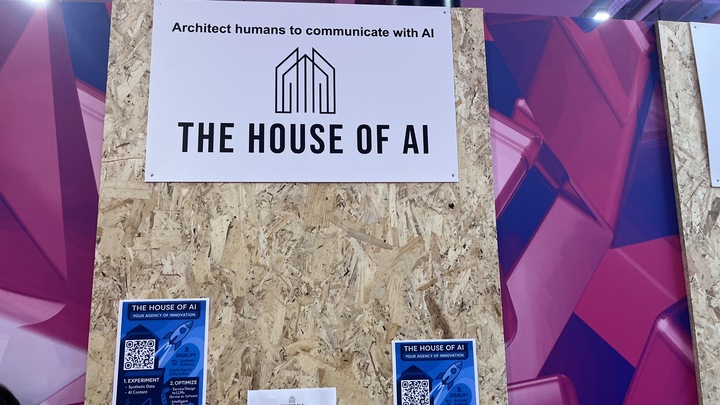
Back down to the floor now, and I'm taking a look at House of AI a super young startup, which looks to support SMEs in integrating tech into their existing systems. They deal with a lot of GenAI, they say, but also plenty of non-generative AI too. They want to help people experiment with AI, as well as optimise it for their needs.
I'm visiting some of the smaller stalls now, and I'm with Saturated - a Johannesburg based digital solutions agency. It essentially offers data-driven digital solutions - and is "sector agnostic". Although they offer a wide range of products, their digital skills training has really taken off in South Africa, and their programme 'Spana!' (which I'm told is slang for online work in Zulu) helps young people in poorly connected areas with digital literacy skills.
Now I'm taking a stop at Notchup, where founder Maulik Sailor is building a copilot specifically for engineering teams. This tool will 'bridge the gap between engineering and HR' with a model that connects to your organisation's roadmap and recommends new candidates or internal upskilling opportunities based on your firm's goals and capabilities.
I'm also stopping by SentiSum, which is a feedback company that analyses internet chatter around your product or company to establish customer experience and evaluations before traditional survey/customer insight methods would be able to. The AI tool alerts to any unexpected issues like a service disruption to mitigate any impact on your organisation.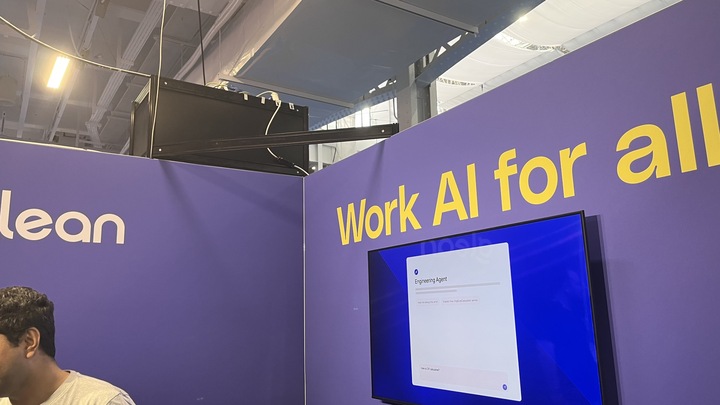
Finally for today, for an internal search tool, Glean offers a seamless system that can find and understand your information as well as summarising and creating content based on the data provided. They work with huge firms like Nvidia, Okta, and Booking.com - and people visiting the stall were very positive about the tools.
That's all from us today at London Tech Week! Thanks to the organisers, speakers, and exhibitors for all your help and insights - and thanks to everyone for reading along! We hope to see all of you again next year!
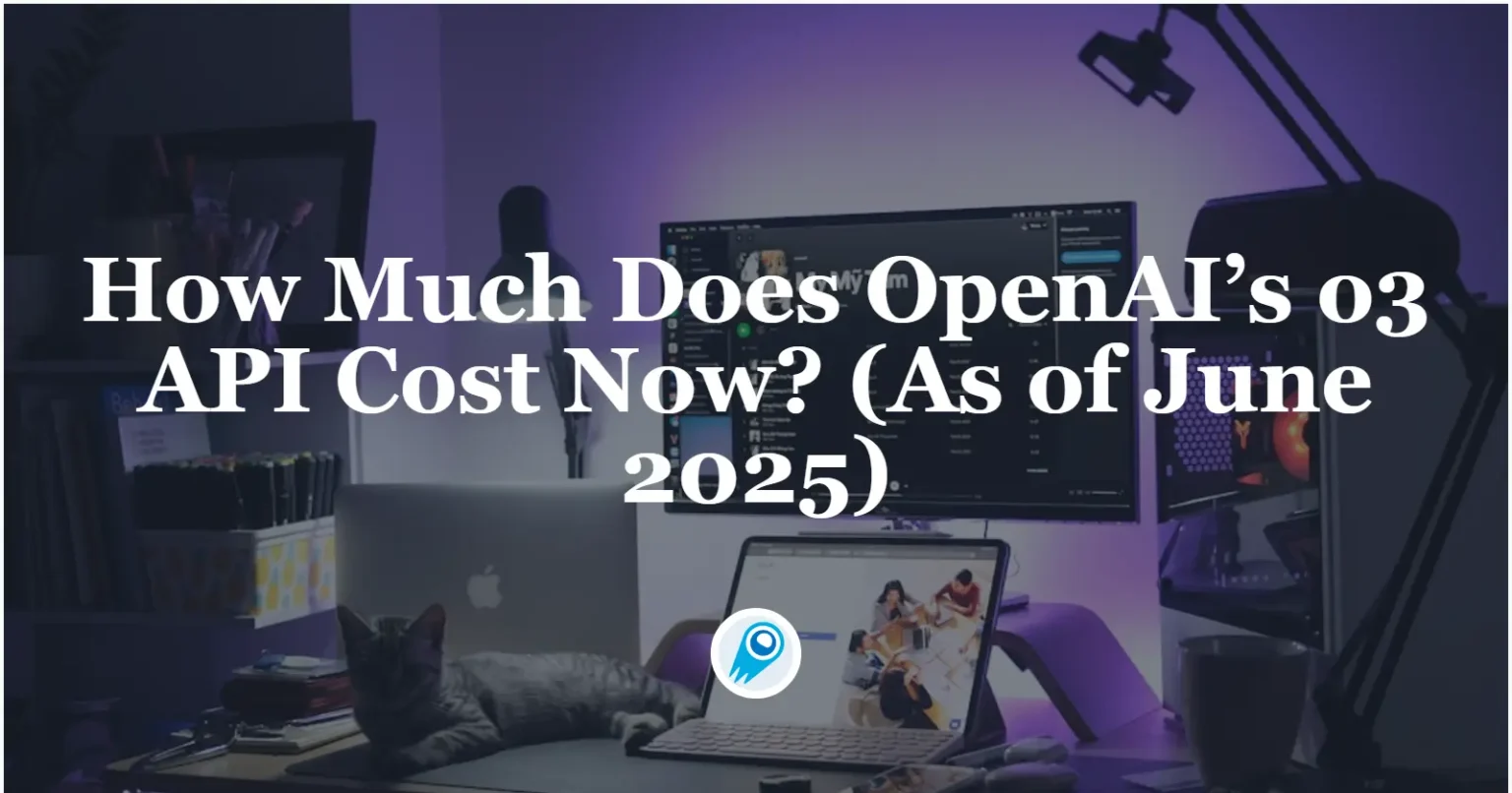
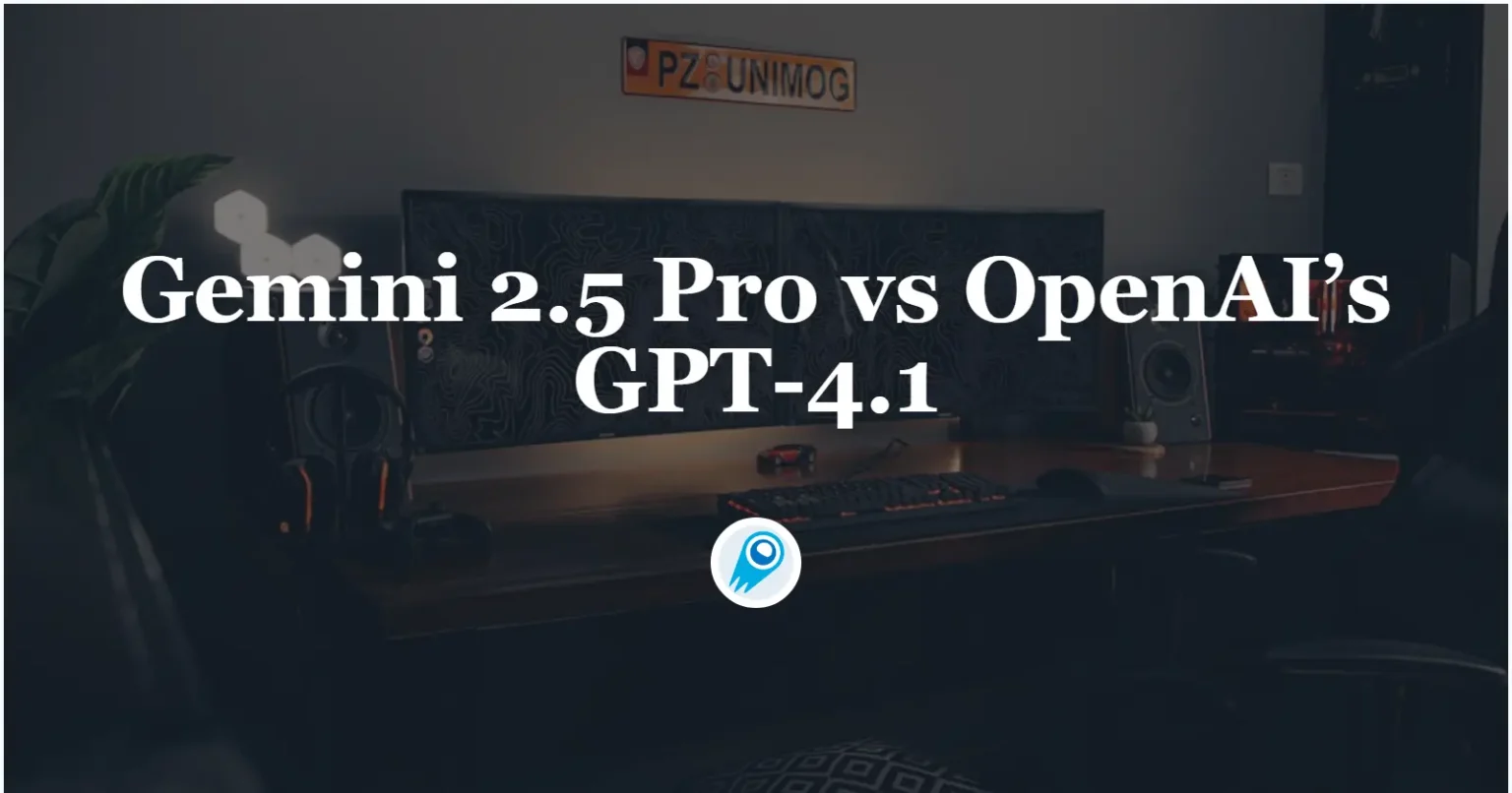



















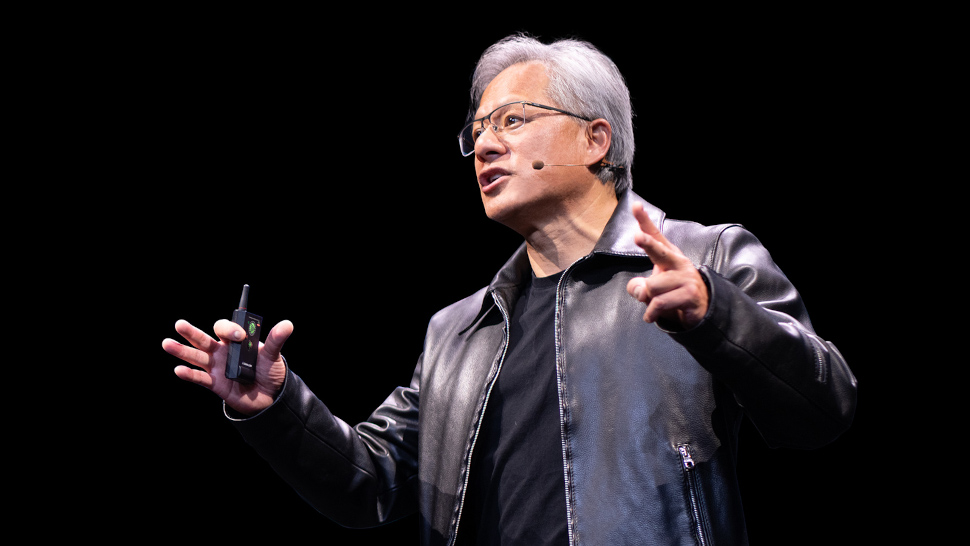
















































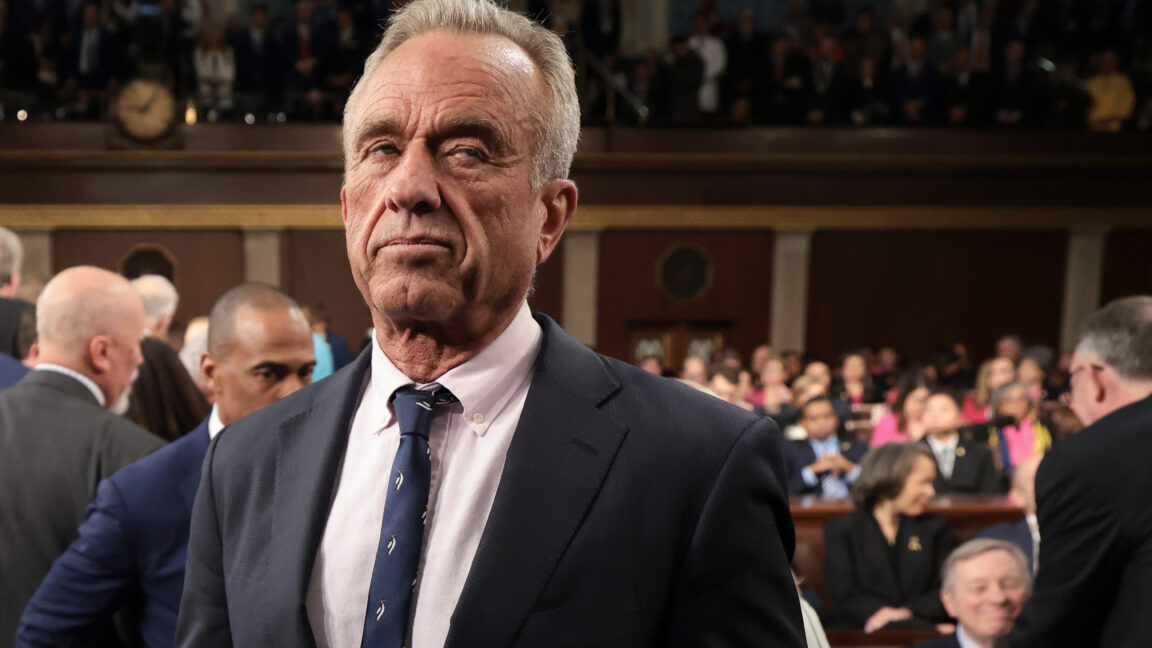
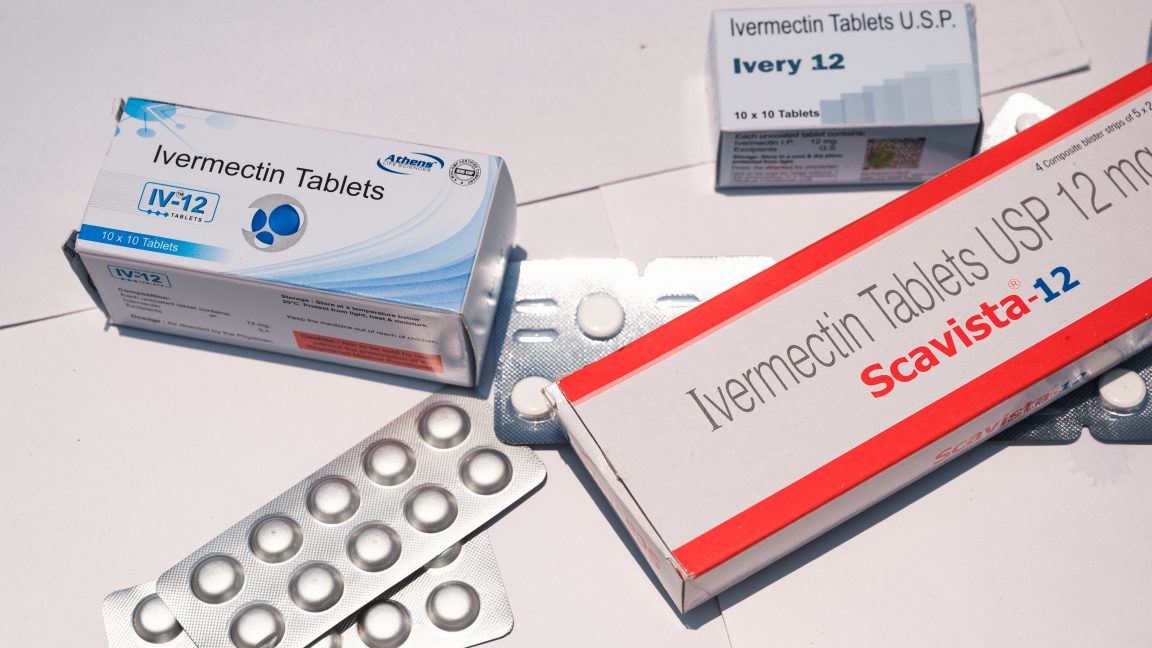







































































![Top Features of Vision-Based Workplace Safety Tools [2025]](https://static.wixstatic.com/media/379e66_7e75a4bcefe14e4fbc100abdff83bed3~mv2.jpg/v1/fit/w_1000,h_884,al_c,q_80/file.png?#)































![[The AI Show Episode 152]: ChatGPT Connectors, AI-Human Relationships, New AI Job Data, OpenAI Court-Ordered to Keep ChatGPT Logs & WPP’s Large Marketing Model](https://www.marketingaiinstitute.com/hubfs/ep%20152%20cover.png)





















































































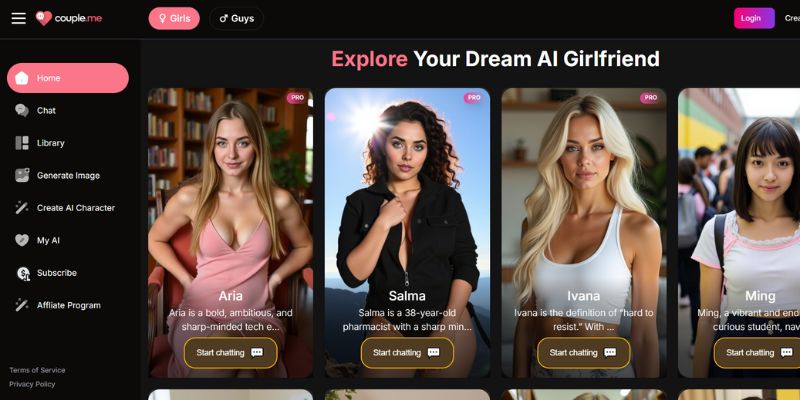
































![[DEALS] Microsoft Visual Studio Professional 2022 + The Premium Learn to Code Certification Bundle (97% off) & Other Deals Up To 98% Off](https://www.javacodegeeks.com/wp-content/uploads/2012/12/jcg-logo.jpg)


















































































































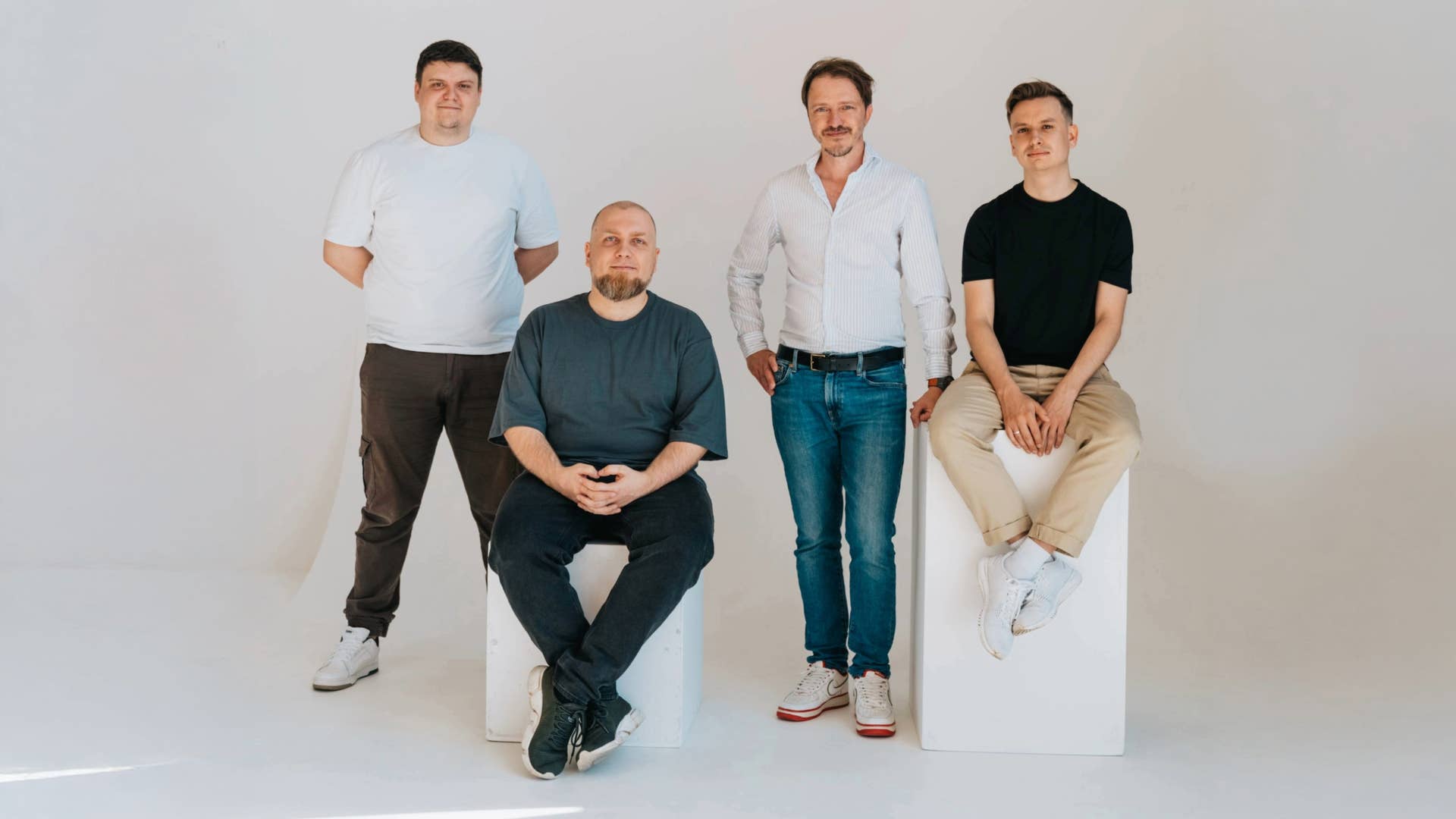
-0-6-screenshot.png?width=1920&height=1920&fit=bounds&quality=70&format=jpg&auto=webp#)





































































































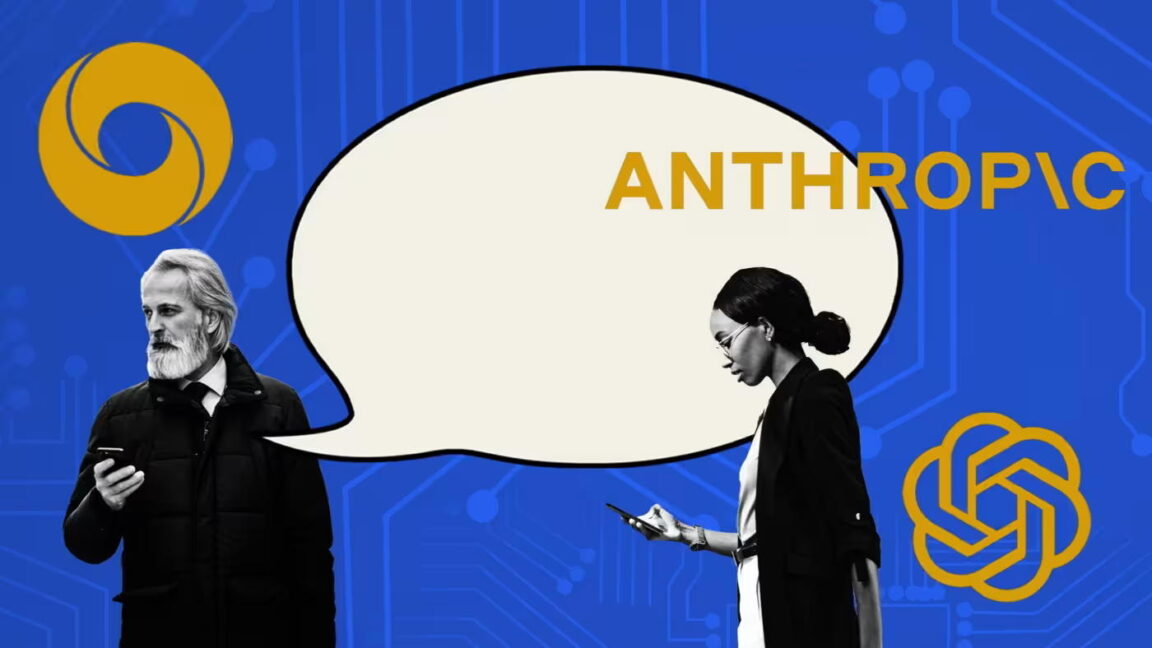


















![Someone is selling a bunch of those rare Essential ‘Gem’ phones for $1,200 [Gallery]](https://i0.wp.com/9to5google.com/wp-content/uploads/sites/4/2019/10/next-essential-phone.jpg?resize=1200%2C628&quality=82&strip=all&ssl=1)














![Apple Shares Teaser Trailer for 'The Lost Bus' Starring Matthew McConaughey [Video]](https://www.iclarified.com/images/news/97582/97582/97582-640.jpg)



















